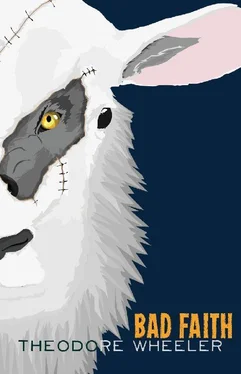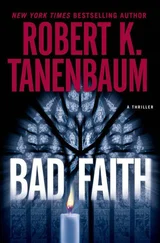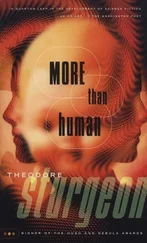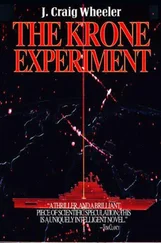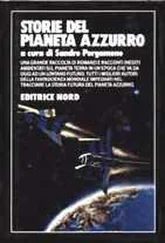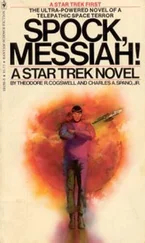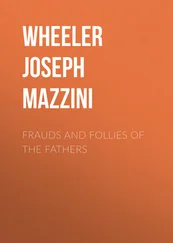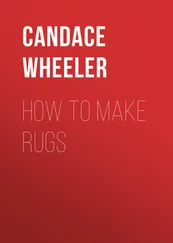Harry moved carefully when he came into the kitchen. His feet slid across the linoleum. He tossed his smokes on top of the refrigerator.
“Sit down,” Aaron said. “I’m making dinner.”
Harry brushed the newspaper off the table to the floor then needed help easing into his chair, Aaron’s hands in his armpits. His mouth was open, his breath phlegm-heavy. “Take it easy,” he said. “Don’t have to goddamn manhandle me.”
Aaron pulled the bread and a couple eggs out of the refrigerator.
“You need to go soon,” Harry said. “Nobody asked you to stick around.”
“You can’t get rid of me. I got a good reason being here.”
Aaron couldn’t tell if his dad actually wanted him there, but he thought he did. Aaron melted a tab of butter into the pan and waited until scorched dairy hit his nose, his cue to crack the eggs. There were salt and pepper shakers, an old metal spatula, the balancing of bread at the edge of the pan to soften. The rasping whistle of Harry’s breath as it cut through the exhaust fan rumble.
It rained and the breeze blew droplets against the window, washing dust off the pane. Aaron watched puddles form in the clay beyond the driveway where red water mixed in a boot print, and farther on still, where rain pelted the empty quonset that used to hold tractors, seeders, and sprayers before his dad was forced to sell his implements and partition his land. Aaron liked cooking for his father, to let the eggs sizzle. Harry wouldn’t eat much, but they’d sit together at the table.
“You should go,” Harry repeated. “This…” he swept a shaking hand over the table. “This is happening whether you’re here or not.”
Aaron laid the bread out on saucers. The eggs slid off the spatula like jelly and landed on the toast. From the center of the table Harry pulled a napkin from a box and tried to unfold it in his lap. His fingertips pinched at the napkin to separate its edges.
“Are we going to eat or what?”
Aaron never actually knew his mother, not in any real way. When he was a boy he fantasized about her coming back to rescue him from Nebraska, to take him with her to L.A., New York, wherever she’d landed. Aaron knew so little about her that these dreams seemed like they could somehow become reality. His dad never told what actually happened to her. If Aaron pestered him enough Harry would say, “She’s alive. That’s all you need to know. That woman you like to call your mom is still breathing somewhere.”
Aaron didn’t learn much about the world outside Jackson County until later, but even as a boy it seemed pretty obvious that things were better elsewhere — and that this was the reason his mother left. There was an old joke about how Jackson was the only county in this Union state to be named after a Confederate general, and that about summed up how out of step Jackson was with the rest of the planet, Aaron thought.
More than likely his mother met a man in Sioux City and took off from there. Maybe a friend of hers had a lead for some quick money, liquor, or drugs, or a chance to work a back room at a horse track. Over the years Aaron convinced himself of a thousand scenarios. She was a nomadic bounty hunter in Texas, a piano teacher in Vienna, an Amazon explorer searching out El Dorado, an African missionary. That she was the wife of an extraordinarily rich man was a recurring theme. They were ridiculous dreams. Aaron didn’t have much to work with in creating them.
He had a vague recollection of when she left, of being dropped at a neighbor’s one evening for dinner. He was five. His mother drove off with a woman and left him. Aaron ate with the neighbor family. They watched TV. He sat on the floor with a kid his age, between the couch the neighbors sat on and the TV. The kid had a Richard Petty matchbox racing set, but he wouldn’t share. The only thing Aaron had with him was a plush stuffed elephant.
Aaron stayed up late that night because his mother was late coming for him. He fell asleep on the floor and at some point the neighbors moved him next to their kid in bed.
Harry was driving trucks overnight then, during the winter, a route between local swine lots and Omaha. The neighbors got ahold of him, but it was morning before he could make it back to town. The neighbor mom was making breakfast, pancakes and eggs, the other kid not yet awake, when Harry pulled his semi into the yard. Aaron forgot his plush elephant there. His dad never talked to the neighbors much, so he never got it back.
Aaron’s mother must have slipped the neighbors some money when she dropped him off, $25 or so, which was a lot for watching a kid in those days, or else they wouldn’t have taken him. Aaron always wished they hadn’t. It seemed like it would have been better if his mother had brought him with her, wherever she went off to. That was when Aaron still believed she was a glamorous type, before Harry threw out her things. A half bottle of perfume. The water cooler she’d won at the county fair. Her clothes still in the cedar dresser. There were pictures Harry forgot in the storm cellar, though, in a box under some cans of spray paint. Pictures of Harry and her sitting in each others’ arms on the hood of an old Dodge, a field of corn behind them, or smiling together in the dim lamplight of some party or another.
Aaron drove around after Harry fell asleep that evening — on brick-paved streets and asphalt county roads, on the gravel access spurs between fallow fields. There wasn’t much else to do if he didn’t want to be at home or sit in that dreary bar. He’d return home later to the sofa bed and listen to his dad’s breathing from the other room.
Aaron was driving his dad’s car because he didn’t have one of his own. There were other ways of traveling. Aaron was an expert at distance walking and hitchhiking and hopping trains and stealing cars. It was easy for him to get around if he had a purpose. He’d hitched to Jackson County this time, but would drive the Lumina while he was here.
Most nights he just parked on a country road between the windbreaks. A gun sat next to him on the seat. It was nothing special, a small pistol, nickel-plated with a handle of hard black rubber. He kept it in his messenger bag, along with the other things he needed. His wallet and ID, a stick of deodorant, a change of underwear. Things that belonged to other people too. A wedding band. A locket with two thumbnail photographs inside. An infant’s sock.
His camera was in the bag. Aaron won the camera a couple years before, betting on college football in a Lincoln barroom. He never would have guessed how much he’d come to depend on the thing. It was a small digital camera, blue and silver, and fit in the palm of his hand. Aaron used the camera to pick up women — saying he’d like to snap a picture of one as an excuse to call her pretty. It was an old bit, one that almost always worked. He was small and skinny, and for reasons he never really understood, women trusted him. He found that most of them would do what he asked if he was persistent enough.
They went to the bank the next morning. Harry wanted to deposit some coins he’d saved in a coffee can, something he’d always called Aaron’s college fund. It was a joke only Harry was in on. Even though Aaron had gone to college, he’d never seen a dime from the coffee can.
A woman and her two boys were ahead of them in line. The boys were toddlers and held to their mom’s legs, each pinching the panty hose that stretched below her hemline. They stared at Harry’s scars, the way he winced while standing, the dead skin that stuck out through his short hair, and the open sores on his neck. Harry wore a pin on his coat that said Cancer Sucks .
Aaron watched the teller in the cage at the front of the line. She must have been new in town, she didn’t look like the other county women, young, with a dark complexion and greasy black hair. She was dumpy in a way that Aaron could tell she drank too much — the thickness of flesh around her cheeks and neck, hollows below her eyes. When they got to the counter, she explained that the bank didn’t accept loose change like Harry wanted to give.
Читать дальше
